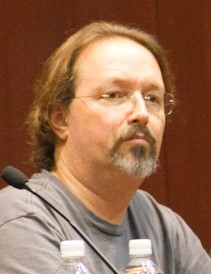A Quote by Rachel Kushner
I don't believe that intelligence can be reduced to a number, frankly. But I can see how doing exactly that produces a useful sorting mechanism in our society in order to separate children into categories of promising and doomed. The tests seem arbitrary and without real scientific value and yet have lasting consequences.
Related Quotes
But it is important to realize we are all trapped in mental constructs, and so we separate ourselves from reality; the whole world loses its aliveness-or, rather, we lose our ability to sense that aliveness, the sacredness of nature. When we approach nature through the conceptualizing mind, we see a forest as a commodity, a concept. We no longer see it for what it truly is, but for what we want to use it as. It is reduced. This is how it becomes possible for humans to destroy the planet without realizing what they are doing.
I think a huge part is how we're socialized growing up to see our value and worth as being tied into a relationship and how our culture teaches us a distorted sense of romantic love - can't live without you, can't breathe without you, I'll die without you. As teenage girls we believe that level of emotional intensity and dramatics equates with real love. We're also taught that if we date lots of people, then we're sluts, so at an early age we put all our eggs into one basket, so to speak, and concentrate on "the one".
When we see animals doing remarkable things, how do we know if we're simply seeing tricks or signs of real intelligence? Are talented animals just obeying commands, or do they have some kind of deeper understanding? One of the biggest challenges for animal researchers is to come up with tests that can distinguish between the two.
To plead the organic causation of a religious state of mind, then, in refutation of its claim to possess superior spiritual value, is quite illogical and arbitrary, unless one have already worked out in advance some psycho-physical theory connecting spiritual values in general with determinate sorts of physiological change. Otherwise none of our thoughts and feelings, not even our scientific doctrines, not even our dis -beliefs, could retain any value as revelations of the truth, for every one of them without exception flows from the state of their possessor's body at the time.
I am inviting you to go deeper, to learn and to practice so that you become someone who has a great capacity for being solid, calm, and without fear, because our society needs people like you who have these qualities, and your children, our children, need people like you, in order to go on, in order to become solid, and calm, and without fear.
Lists help us manage the chaos of our lives—to impose order, if only for a moment. Writing a list clears the mind. … Once everything is written down, it’s easier to see which tasks are important and in what order to tackle them. Tasks that seem overwhelming look easier when reduced to mere lines on paper.
In short, my vision of a responsible free society is one in which we discourage evil, but do not prohibit it. We make our children and students aware of the consequences of drug abuse and other forms of irresponsible behavior. But after all our persuading, if they still want to use harmful drugs, that is their privilege. In a free society, individuals must have the right to do right or wrong, as long as they don't threaten or infringe upon the rights or property of others. They must also suffer the consequences of their actions, as it is from consequences that they learn to choose properly
It seems that the increased number of scientific workers, their being split up into groups whose studies are limited to a small subject, and over-specialization have brought about a shrinking of intelligence. There is no doubt that the quality of any human group decreases when the number of the individuals composing this group increases beyond certain limits... The best way to increase the intelligence of scientists would be to decrease their number.





































